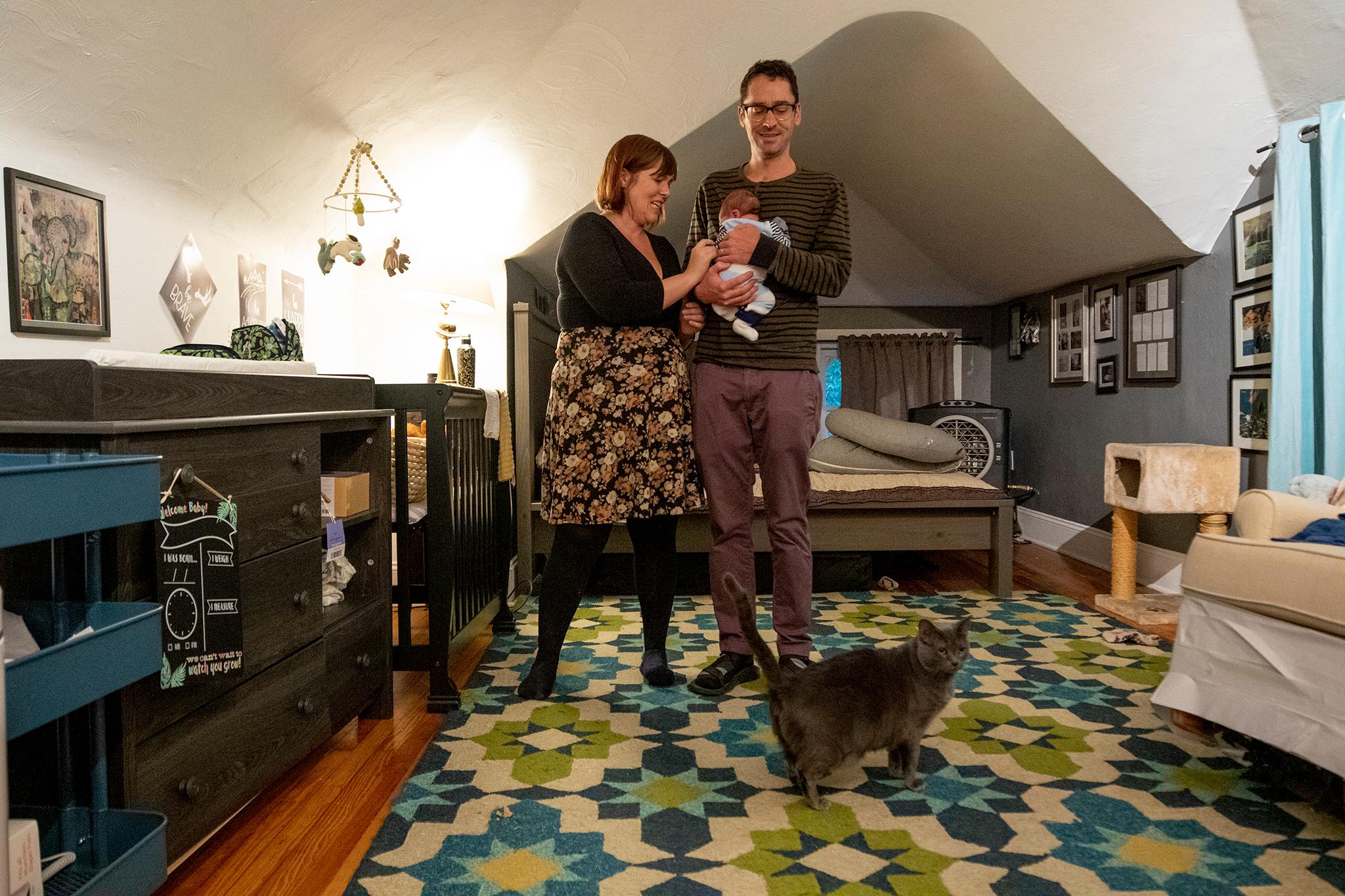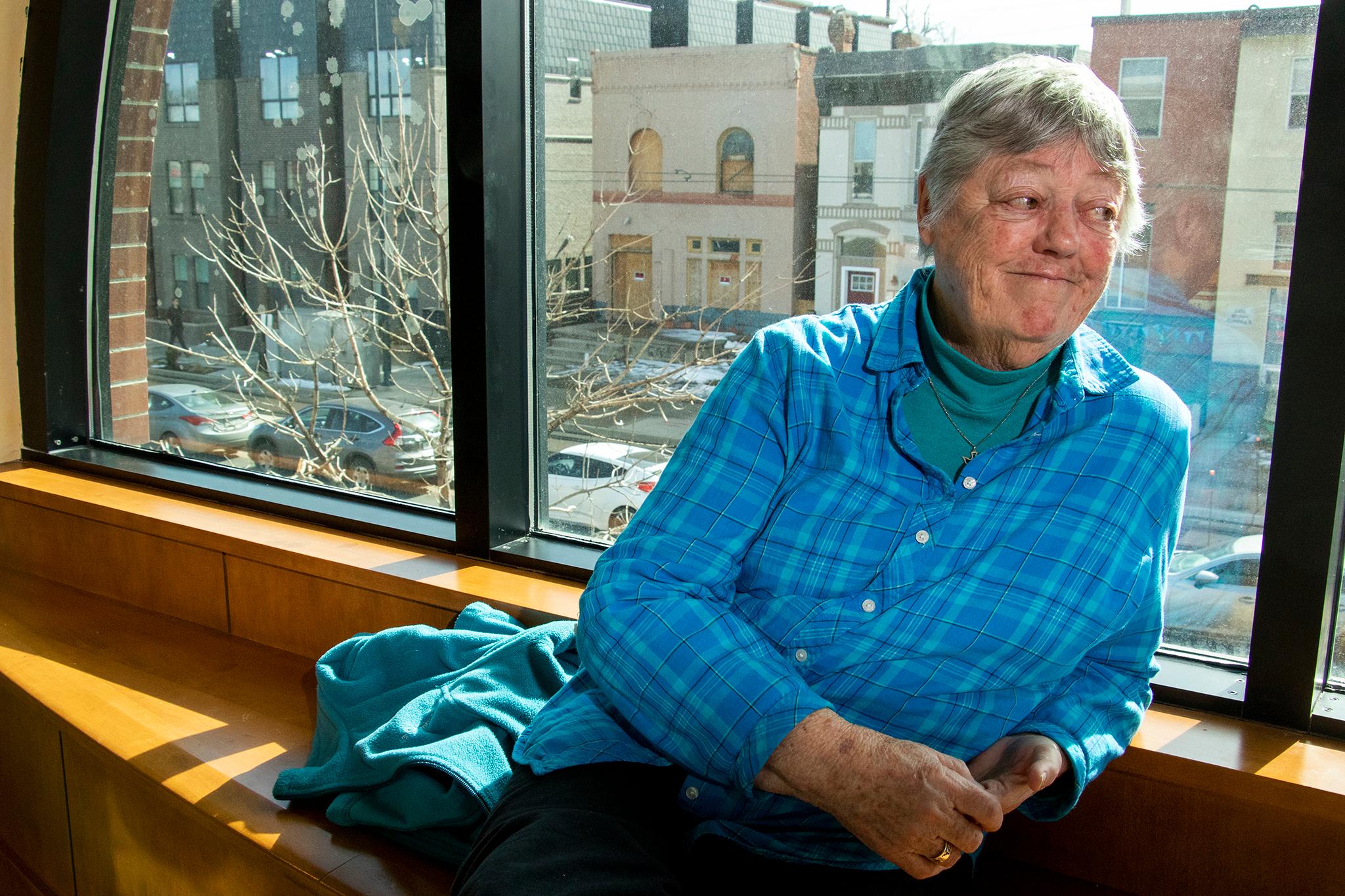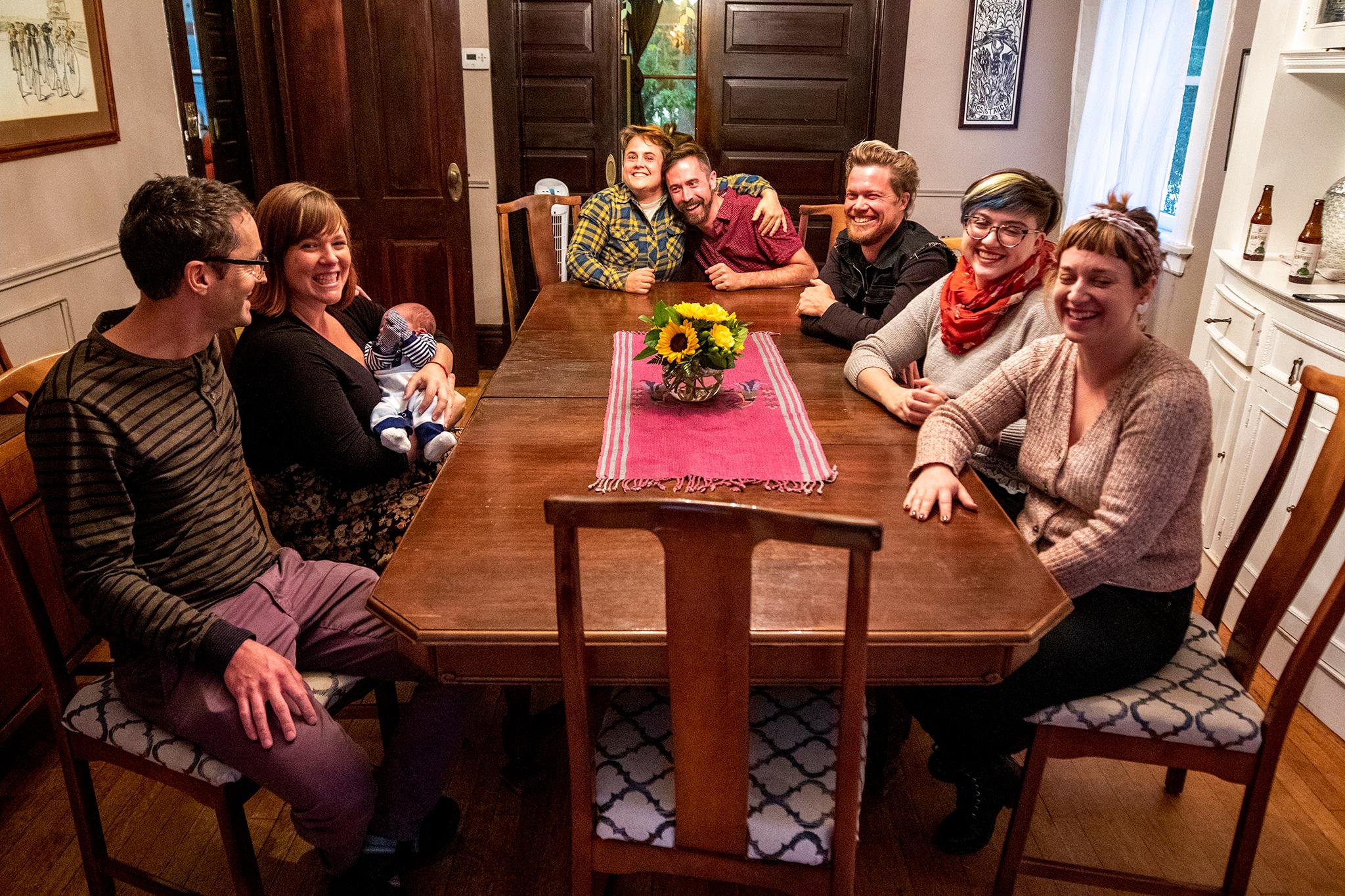There are a lot of rules around people sharing living space in Denver when they're not related to one another. After city staffers, architects and other experts and advocates studied them for two years, they came up with some things they'd like to change:
The number of adults who aren't related to one another who can legally share a single-family home in Denver would be increased from two to eight. Permanent tiny home villages would be permitted in any part of town zoned for apartment buildings. Halfway houses would be allowed in more neighborhoods.
Those are just some of the proposals.
Over the next few months, the broader public will get a chance to learn about and react to the suggested zoning code revisions before City Council votes on whether to adopt them. The first public meeting on the possible changes is set for Feb. 11 from 6 p.m. to 8 p.m. at Bruce Randolph School at 3955 Steele Street.
"We are modernizing a very outdated code with an eye toward equity," said Andrew Webb, the city planner who has managed the project on zoning for group living. "We certainly think it's very important to bring the code up to speed with the way people living together has evolved."
Webb said part of the goal was ensuring that no part of the city was off limits to any resident, and that some of Denver's most vulnerable citizens had homes with good access to public transportation and jobs.
As the city says in explaining why change was contemplated, "current regulations don't reflect the evolution of lifestyles, community needs, or the vision in Denver's Comprehensive Plan for a more inclusive, connected and healthy city. They make it hard to provide housing for Denver's most vulnerable populations, by excluding some populations from our neighborhoods, and define 'households' in ways that make it harder for residents to reduce housing costs by living with roommates."
The current zoning rules were adopted in 2010, but there are pieces from the 1950s in there, too.
That's before ideas such as tiny home villages as an alternative to homelessness shelters were envisioned.
Webb has already presented the proposals at a dozen neighborhood organization meetings. He's sensed concern among some that if the suggestions are adopted, Denver could change drastically. While people who might have been considering, for example, commune-style living might be encouraged to move forward, Webb said he expects the main impact of the changes would be to legalize what many people are already doing. He said costs and other considerations made it unlikely that a new wave of shelters or halfway houses would result.
Among questions city officials have fielded about the proposed changes is whether they would lead to landlords buying up large houses to rent out rooms. The answer, according to the city's Community Planning and Development department: "A landlord who rents individual rooms inside a large house to multiple people is not considered as heading a "household." The Denver Zoning Code defines that scenario as a rooming and boarding house use, which is not permitted in single-unit, two-unit and rowhome zone districts."
Sarah Wells said that when she and other members of her living cooperative went to the city zoning department a few years ago, they thought the code allowed for four unrelated adults to share a home, and that they could petition to add two. That's when she discovered the limit was two.
"We sort of sheepishly asked for our application back," Wells said.

Wells hasn't been sheepish about proposing that grassroots organizations like her Queen City Cooperative in Capitol Hill, launched in 2015, can be part of the solution to the crisis that has resulted from fast-rising housing costs and slow-rising wages. Wells and her husband, who recently had a baby, share their home with five other adults. Her roommates include teachers, journalists and entrepreneurs.
Jennifer Newcomer, director of the Piton Foundation's Shift Research Lab, and Phyllis Resnick, executive director of the Colorado Futures Center, said in a report released last year that more Coloradans are living with friends, roommates and relatives now than before the economic decline of the late 2000s. Similar research from the online real estate company Apartment List found that since 2007 metro Denver has seen a doubling of households composed of roommates who are not related or families sharing a home with someone not related to them.
Wells was a member of the 32-member citizen advisory committee that helped draft the suggested zoning changes. She said the proposed change to allow home sharing among as many as eight adults who are not related to one another would mean members of Queen City Cooperative and many other households she knows of would be able to continue living as they are without seeking permits.
"This is a very simple and straightforward approach," she said.
Webb, the city planner, said the number eight was settled upon because state law on group homes for, for example, adults with disabilities, designates that such facilities that are home to no more than eight must be treated like any other household.
Wells said the proposal provides protections for renters in such households who might now hesitate to request repairs of a landlord for fear of being evicted.
She added that during the drafting process, she heard concerns that the impact of the change could lead to neighborhoods being crowded and parking growing scarce. She said building codes and other measures could address such issues.
Wells noted the zoning code already allows an unlimited number of adults who are related to live together, and questioned why people who are not related should be treated differently.
"People should be allowed to live together safely in whatever configuration they want," Wells said. "I am excited for Denver to have this opportunity to pass what I think would be a really inclusive and progressive zoning change."
Anna Koop is another Denver housing innovator who could be directly affected if the group living rules are changed.

When Koop, a member of the Loretto order of nuns, opened Denver's Catholic Worker house in 1978, it never occurred to her to seek permission to offer shelter there to a few people at a time who were might otherwise be without homes. Since journalist Dorothy Day and Catholic social activist Peter Maurin created the first one in New York in the 1930s, Catholic Worker houses have been established across the United States.
After a fire in 2016, Koop began making plans to open a new Catholic Worker house at 1023 26th St. that first needed renovations. This time, neighbors raised questions that city officials found difficult to answer.
"Goodwilled people doing their jobs could not find a (zoning) category for the Catholic Worker house," Koop said. "It went on and on, trying to find the designation that would suit us."
The renovations at 1023 26th St. were completed last fall. It has been home to two people acting as hosts and, recently, a father and a son from Congo who are seeking asylum, Koop said. She said that's half the building's capacity. Koop lives next door.
If the new code proposals are adopted, "there's no need for us to ask for a permit," Koop said. "We'd go back to what we've been for years: a single household of unrelated adults."
Koop was not on the advisory committee that helped create the proposed code changes, but attended some of its meetings. The process also included speaking to residents of shelters, halfway houses or group homes for people overcoming addiction.
Koop said that at upcoming public meetings, she hopes audiences hear that the changes will help create ways to meet community needs "in a city where the housing prices have totally outpaced people's ability to afford" homes.
In addition to the Feb. 11 meeting at Bruce Randolph School, what Community Planning and Development calls open houses are scheduled for Feb. 22 from 9 a.m. to 11 a.m. at Goldrick Elementary School, 1050 S. Zuni Street; Feb. 26 from 6 p.m. to 8 p.m. at the Hebrew Educational Alliance, 3600 S. Ivanhoe Street; and March 4 from 6 p.m. to 8 p.m. at the Schietler Recreation Center, 5031 W. 46th Avenue.
While no date has been set, a Planning Board meeting on the proposals is expected in April followed some time after that by a City Council vote, both moments in the process at which the public will also have opportunities to comment on the possible changes.












